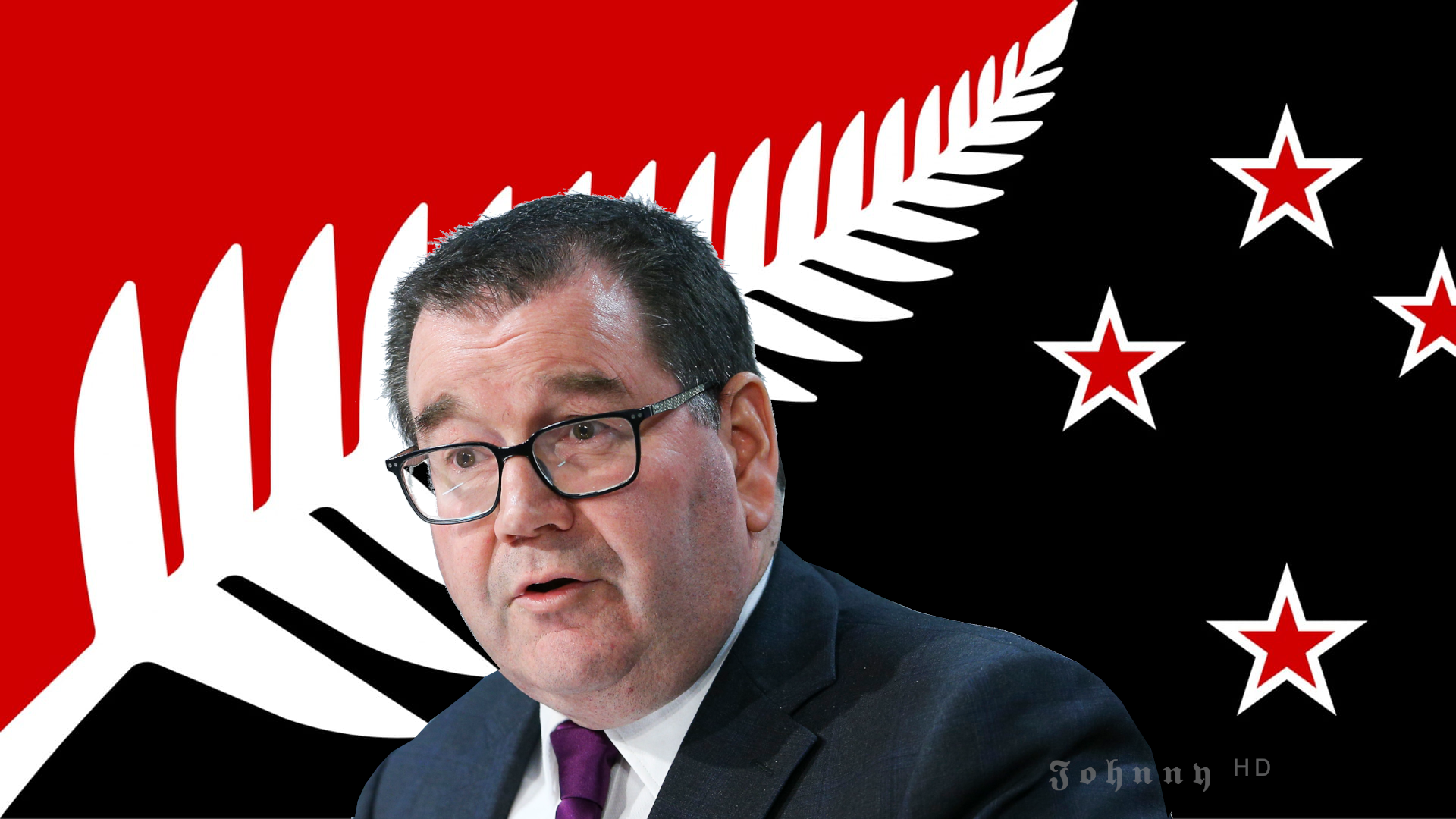ℍ𝕠𝕨 𝕥𝕠 𝕄ℙ: 𝕋𝕚𝕡𝕤 𝕗𝕣𝕠𝕞 𝕒 ‘𝕘𝕣𝕖𝕒𝕥 𝕡𝕒𝕣𝕝𝕚𝕒𝕞𝕖𝕟𝕥𝕒𝕣𝕚𝕒𝕟’
ℍ𝕠𝕨 𝕥𝕠 𝕄ℙ: 𝕋𝕚𝕡𝕤 𝕗𝕣𝕠𝕞 𝕒 ‘𝕘𝕣𝕖𝕒𝕥 𝕡𝕒𝕣𝕝𝕚𝕒𝕞𝕖𝕟𝕥𝕒𝕣𝕚𝕒𝕟’
𝔾𝕣𝕒𝕟𝕥 ℝ𝕠𝕓𝕖𝕣𝕥𝕤𝕠𝕟 𝕙𝕒𝕤 𝕝𝕖𝕗𝕥 𝕥𝕙𝕖 𝕙𝕠𝕦𝕤𝕖. 𝕋𝕒𝕜𝕚𝕟𝕘 𝟙𝟞 𝕪𝕖𝕒𝕣𝕤 𝕠𝕗 𝕡𝕒𝕣𝕝𝕚𝕒𝕞𝕖𝕟𝕥𝕒𝕣𝕪 𝕖𝕩𝕖𝕣𝕚𝕖𝕟𝕔𝕖 𝕨𝕚𝕥𝕙 𝕙𝕚𝕞. 𝕊𝕠 ℝℕℤ'𝕤 𝕡𝕒𝕣𝕝𝕚𝕒𝕞𝕖𝕟𝕥 𝕤𝕙𝕠𝕨, 𝕋𝕙𝕖 ℍ𝕠𝕦𝕤𝕖, 𝕞𝕒𝕕𝕖 𝕒𝕟 𝕒𝕥𝕥𝕖𝕞𝕡𝕥 𝕥𝕠 𝕔𝕒𝕥𝕔𝕙 𝕤𝕠𝕞𝕖 𝕥𝕚𝕡𝕤.
On his final day at Parliament, as his office was about to be packed away, Robertson sat with me in Labour’s caucus room to talk MP skills. He’s a good man to ask. Yes, he’s a former Deputy Prime Minister and Finance Minister but he also shone in the House – politics’ gladiatorial ring.
After his valedictory the previous evening MPs from across the House were buzzing. “Did you hear that?” one Nat said as I passed him in the hall, “What a great speech.” He was right, it was. Funny, touching, thoughtful and punchy. Introducing that final outing, the Speaker, a long time political foe, described Robertson as a ‘great parliamentarian’.
An improvised portrait of Grant Robertson, garlanded with a rainbow ribbon hangs outside the Labour Party corridor in Parliament House, in the spot where a portrait of Winston Churchill once hung. His colleagues have captioned it "GMR - GONE BUT NOT FORGOTTEN". Photo: VNP / Phil Smith
“That does mean a lot to me”, he says of that descriptor. He also likes that it highlights a key facet of the role, sometimes overlooked.
“Ultimately the job title is Member of Parliament. And the debating chamber is where we do the heavy lifting of that job. That does mean a lot to me. And I've always enjoyed the debating chamber particularly. That might have come through,” he adds with a chuckle.
.

.
On public speaking
It’s clear that Robertson was in his element speaking in the chamber, but he wasn’t instantly comfortable.
“It’s not like it all clicked into place straight away” he admits. He still remembers the first proper speech he gave (his maiden speech). “I did think I was going to faint”.
“I always tell school kids that when I was their age, I either wanted to be a lawyer or an actor, and now [as a Parliamentarian] I get to be both.”
Grant Robertson's valedictory address.
“I've always enjoyed debating and public speaking. And I think they are pretty important skills; and being an MP, if you don't have them, you are going to struggle. But for me, I was fortunate that I had a bit of [experience in] that coming in, and so felt comfortable talking.”
It helped that he’d worked in Parliament before becoming an MP, had been a keen observer of Parliamentary Debate, and had written speeches for other people to deliver in the House.
“And so I guess I had an idea of how that side of the job worked. And I enjoyed it. And I think fundamentally, if you enjoy something, you'll often end up looking like you're quite good at it.”
On speech writing
Except for the set-piece speeches (their first and last and events like a budget delivery) MPs aren’t actually meant to read out their speeches. They are meant to debate, off-the-cuff and respond to the ideas being raised. Many MPs struggle with that.
The best speakers can be both funny and devastating with just a few bullet points to work from. Robertson is one of those, but he also writes with great skill. I ask for his method.
“I have a friend… who has a parable about writing, which is of ‘The Madman, The Architect, The Builder and The Judge’. ...Most people, when they're writing something, do that in reverse order. So they sit there and they anguish over whether something should be in, like the judge. Whereas actually, you should reverse the order and just dump down everything that you want to write. …Be the madman at the beginning, and then [design and] build your house after that, and then judge whether it's good.”
“So for those bigger sorts of speeches, I just tend to dump down all of my thoughts, and then go through and refine and bring other things in. And that is what I did for the valedictory. And I probably –in a couple of sessions– got down most of what was in the madman's head, and then refined it. …It was pretty hard to squeeze two decades into 30 minutes.”
.
.
Going hands free: speaking without notes
Robertson says that for most speeches in Parliament though, it's different.
“But for the most part in Parliament, I tried not to use notes. And in fact, much to the frustration of my staff, I barely used notes, even as a Minister of Finance.”
The notes free approach allows him to focus on the audience. “Being able to look at people as much as you possibly can, will give you the greatest impact.”
He remembers Miranda Harcourt quoting John Wayne: “ ‘acting is looking people in the eye and telling them the truth’. And there's an element of that I think in public speaking that if you can look somebody in the eye and connect, you'll do well. I also think you're freer. And you've got to be confident to do it. If you're not confident it's not going to work.”
Robertson’s General Debate speeches are pretty unusual in Parliament. For a start they are genuinely funny. Often beginning more akin to a stand-up comedy routine than a debating speech. But despite their dense thicket of barbs, it is not unusual to see political foes enjoying them, as well as party colleagues. He doesn’t take all the credit himself.
“I had some staff who were really good at that stuff as well. And we would kind of workshop some of the jokes and get them ready. But I almost never wrote out a general debate speech in long form, they were usually just words and phrases, which I would then use as part of the routine.”
Keep reading this article Here







Comments
Post a Comment